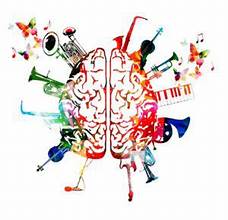Uncategorized
Why Learning to Play a Musical Instrument Improves Cognitive Skills
Why Learning to Play a Musical Instrument Improves Cognitive Skills
Learning to play a musical instrument is not only a creative and enjoyable pursuit, but it also offers significant cognitive benefits. Whether you’re a beginner or an experienced musician, playing an instrument engages your brain in ways that improve memory, concentration, and problem-solving skills. Here’s a look at how learning music can boost cognitive abilities and enhance brain function.
1. Enhances Memory and Recall
How It Works
Learning an instrument requires the memorization of scales, pieces of music, and techniques. As you practice, your brain becomes better at storing and recalling information. Musicians, especially those who play from memory, exercise both their short-term and long-term memory, which strengthens overall brain function.
Key Benefits
- Improved Retention: Studies have shown that musicians tend to have better recall abilities, especially when it comes to auditory and visual memory.
- Memory Flexibility: Playing an instrument often involves memorizing patterns, notes, and rhythms, which helps your brain adapt to learning new concepts quickly.
Real-World Applications
This enhancement of memory can translate into better performance in school, work, or everyday tasks where recall and information retention are important.
2. Boosts Problem-Solving and Critical Thinking
How It Works
When playing an instrument, you are constantly solving problems. Whether it’s figuring out the correct fingering for a note or interpreting a complex piece of music, musicians must analyze and apply information in real-time. This continuous mental exercise enhances cognitive flexibility and problem-solving skills.
Key Benefits
- Increased Analytical Thinking: Musicians learn to think critically about music theory, rhythm, and melody, which improves analytical thinking.
- Quick Decision Making: Musicians must make rapid decisions about timing, tempo, and pitch while playing, sharpening their ability to think on their feet.
Real-World Applications
These problem-solving skills are highly transferable to other areas of life, from work-related challenges to personal decision-making.

3. Improves Focus and Concentration
How It Works
Playing an instrument requires intense focus, whether you’re reading sheet music, following a conductor, or playing in an ensemble. Your attention is fully engaged as you juggle multiple tasks: keeping track of rhythm, pitch, and dynamics, while also ensuring that your hands, eyes, and ears are working together seamlessly.
Key Benefits
- Stronger Concentration: Studies suggest that musicians have a heightened ability to focus on tasks and filter out distractions.
- Improved Attention Span: Learning music can help lengthen attention spans, as it trains the brain to concentrate for longer periods, especially when learning complex pieces.
Real-World Applications
Stronger focus and concentration help in academic settings, professional tasks, and even in personal relationships where undivided attention is needed.
4. Enhances Spatial-Temporal Skills
How It Works
Spatial-temporal skills are the ability to understand how objects or events are related in space and time. Musicians use these skills when reading music, playing an instrument, and understanding the relationships between notes and rhythms. For instance, a pianist must read multiple lines of music, translate that into finger movements, and coordinate with a steady rhythm—requiring a high level of spatial-temporal processing.
Key Benefits
- Better Visualization: Musicians can visualize abstract concepts in space and time, such as intervals, pitch relationships, and chord progressions.
- Improved Mathematical Abilities: Studies have shown that musical training can improve mathematical skills, particularly those involving patterns, geometry, and fractions.
Real-World Applications
This cognitive benefit can aid in everything from architecture and engineering to understanding complex systems in science and technology.
5. Strengthens Executive Functioning
How It Works
Executive functioning refers to the set of cognitive processes that include planning, reasoning, problem-solving, and decision-making. Learning to play an instrument involves coordinating these skills, especially when preparing for a performance or practicing complex pieces. The brain’s executive functions are constantly being engaged and developed as musicians read music, adjust to different tempos, and navigate their instrument.
Key Benefits
- Increased Self-Control: Musicians must practice self-discipline, such as sticking to a practice schedule or overcoming difficulties in mastering a piece.
- Better Organization: Playing music helps develop organizational skills, as musicians must manage practice routines and plan performances.
Real-World Applications
These executive function improvements can make tasks in daily life easier, whether it’s staying on top of work deadlines, managing projects, or balancing personal responsibilities.

6. Promotes Emotional Regulation and Self-Expression
How It Works
Learning to play an instrument gives individuals a creative outlet for emotional expression. Music has been shown to reduce stress, improve mood, and help regulate emotions. By expressing feelings through music, individuals can improve their emotional intelligence, which is vital for social interactions and overall well-being.
Key Benefits
- Stress Reduction: Playing music has therapeutic effects, lowering stress levels and helping musicians manage anxiety.
- Emotional Intelligence: Musicians often develop a greater understanding of their emotions and can channel those feelings into their music.
Real-World Applications
Stronger emotional regulation improves relationships, communication, and mental health, contributing to a more balanced life.
7. Strengthens Coordination and Motor Skills
How It Works
Playing a musical instrument requires the use of both hands, feet (for piano pedals or drums), and even the mouth (for wind instruments), requiring fine motor control. The brain’s motor areas work overtime to coordinate these actions, leading to improved dexterity and overall physical coordination.
Key Benefits
- Improved Fine Motor Skills: Musicians develop stronger hand-eye coordination, which can aid in tasks requiring dexterity.
- Increased Brain-Hand Connection: For string and keyboard players, the connection between the brain and hand movements is significantly strengthened.
Real-World Applications
Improved motor skills can enhance everyday tasks, such as typing, cooking, or even sports, where coordination is key.
Conclusion
Learning to play a musical instrument provides more than just the ability to create beautiful music. It enhances cognitive skills, from memory and concentration to problem-solving and emotional intelligence. Whether you’re learning music for personal enjoyment or professional development, the cognitive benefits are vast and long-lasting.
At OneBestLuxe Texas, we believe that music is a powerful tool for brain development. Start your musical journey today and unlock a world of cognitive improvements that will benefit you in all areas of life. Explore our wide range of musical instruments and find the one that resonates with you!

